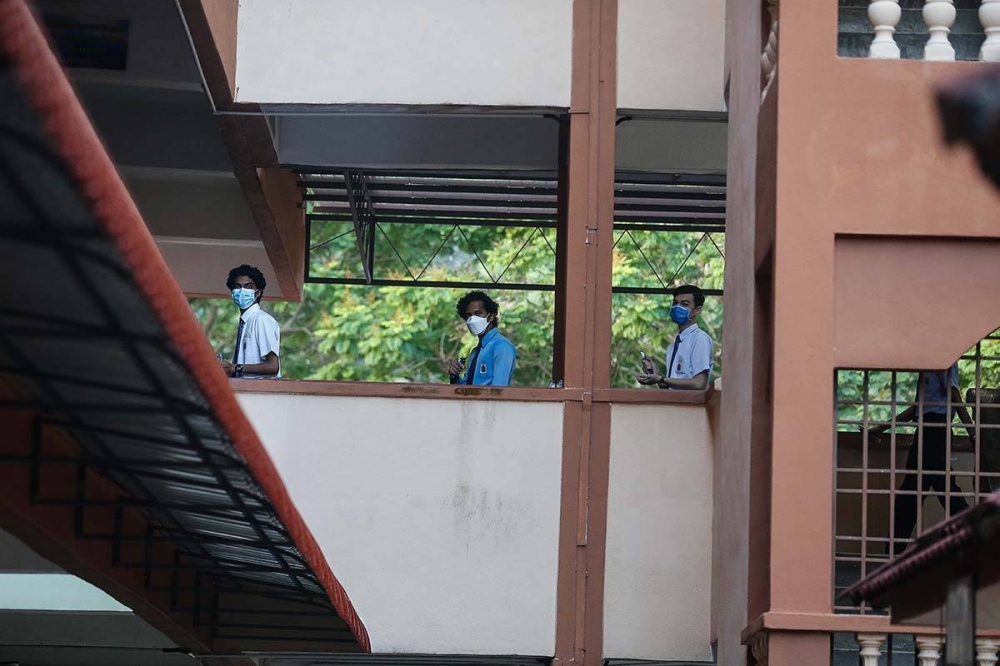AUGUST 22 — Education, like politics and food and parenting, is one of those things where everyone identifies as an expert but in truth knows precious little about.
Often when I hear people comment about the education sector, I get a feeling this is how parents must feel when non-parents talk like they invented the notion of raising kids.
It is especially grating on the spirit when non-educators make snide comments about how bad or untrained or uninformed today’s lecturers are.
Even worse when students and their parents pontificate about the state of Malaysia’s education and subtly (or less so) blame it on lecturers.
Whatever the “truth” of their accusations, I want to offer a brief glimpse of a world I suspect not many non-educators are aware of.
Ladies and gentlemen, do you know what some of your teachers and lecturers have gone through for their students’ (i.e. your) benefit?
There are the “quotidian” acts like staying up until 3am (and feeling like a zombie the next day) to ensure the lesson materials have that extra “kick” because God forbid the students get bored during a lesson on sand dunes and climate change.
The alternative is to simply use the lesson slides from the previous lecturer no matter how uncool or boring those are but, no, this lecturer believes in delivering top-quality classroom experiences so to hell with sleep.
I have also seen a teacher spend literally hours in the canteen or a spare classroom elucidating the differences in calculations between a Profit and Loss Account and a Balance Sheet to students who forget every second thing she says.

This same teacher, should she have decided to, could’ve simply pointed the students to the relevant chapters in Frank Wood’s book, told them to solve their own problems and proceeded with getting a life.
Even worse when bubbly new fresh-grad Masters or PhD employees are thrown half a dozen new subjects because no one else in the department wants to teach them or get saddled with evening classes throughout the week (in addition to other duties) because, well, everybody else don’t want to have their dinner and Netflix time interrupted and, of course, the department would never do something as radical as hire more staff to more evenly spread the work around.
Students are also likely unaware of those end-of-semester periods when some lecturers spend four nights a week at a Starbucks, from about 6pm to 10pm, marking millions of papers and combing through every bleedin’ line of every exam essay just because to not do so would weaken the objectivity and reliability of that assessment.
And what about those times when a Head of Program (usually also a lecturer) had to give up her entertainment and free time for a month because she has to manually (and thus carefully) approve courses selected by students for the upcoming semester?
Any error here could potentially result in insufficient or surplus credit hours which could translate to either wasted fees or delayed graduation or both.
Believe you me, when a student fails to get across that line within the stipulated time (or fails at anything for that matter), the very first people the university questions are the lecturers.
That is to say that often the people working hardest to help the students are also the default “suspects” should the shit hit the fan.
Talk about life being unfair.
Speaking of study failure, I hope the public is aware that sometimes lecturers have to call up students in order to beg and threaten and cajole them to hand in their assignments which were due the last decade.
You read that right: Some lecturers phone their students to remind these future nation-builders that if they don’t submit that final New Media Studies assignment before Wednesday they won’t have enough to pass the course, which means they’ll need to pay extra to redo it.
Why we bother when it’s rarely appreciated (let alone rewarded) is still something I can’t figure out.
Maybe something in my soul cannot bear the idea that these kids are throwing away their parents’ money. Maybe I’m concerned these kids are suffering psychological issues and simply need that extra nudge. Maybe I hate a system which demands an extra few hundred dollars over a shortfall of nine marks.
Whatever the case, I (and many others) do it in the face of “Just let them fail lah!” Finally, there are the massive spikes in blood pressure thousands of lecturers around the country suffer due to the documentation required by the Malaysian Qualifications Agency (MQA), that highly omniscient and sacredly revered organization which oversees the country’s universities and colleges, ensuring that we have institutionally crossed every T and dotted every I lest all students in Malaysia suffer brain death overnight.
Anyone reading this who believes that the job of lecturing is the most inspiring and uplifting kind of work possible in Malaysia need only spend one week dealing with the thousands of pages and forms and “evidence” required by the MQA to verify if your institution is qualified to run any classes and confer certificates; you spend a few days doing that (let alone months and months, I kid you not) and I guarantee you’ll start refreshing your CV all over again.
I personally know at least two people who’ve had to take medication because of non-stop pressure related to submitting MQA forms. I even have emails showing how we requested a few days’ postponement of the submission because, well, Chinese New Year had just begun.
MQA rejected the request and demanded the submissions come in the day after the break. Go figure.
I could continue ranting about MQA but I better stop lest I need to check into the nearest ICU.
All the above, despite the torture and agony, are frequently treated like run of the mill. No matter how much we lecturers complain, very few people (and very few HR evaluators) construe what we do as “over and above” the call of duty.
So now you know.
* This is the personal opinion of the columnist.





















